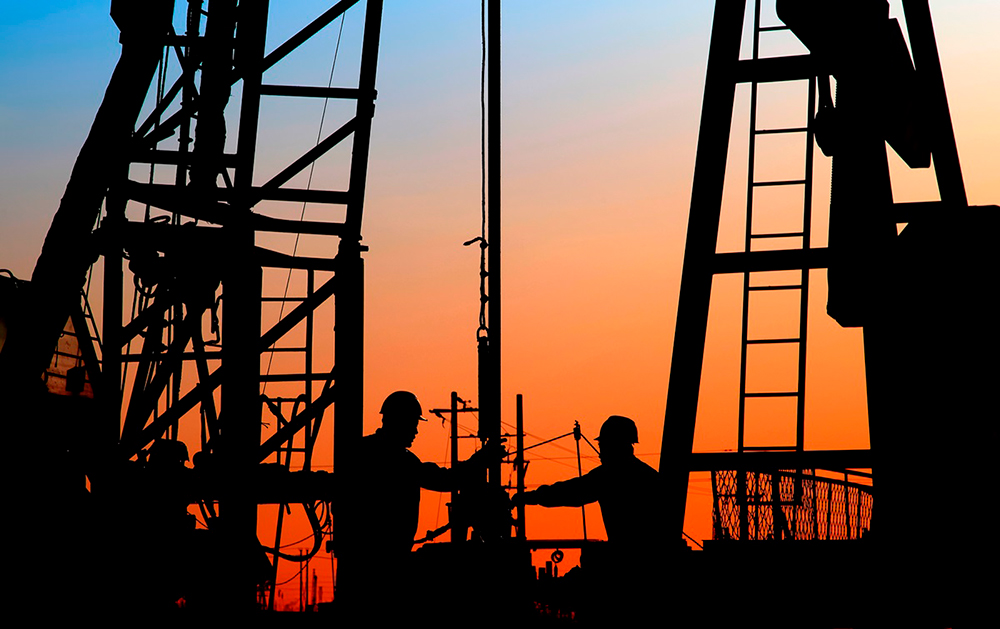The Challenge: How does the experience of rural Indigenous oilfield workers, on and off reserve, differ from that of other workers?
The Research: For the Parkland Institute, Angele Alook interviewed Indigenous people at work in oil and gas. Social science researchers wanted to fill a knowledge gap about the experiences of these workers.
The Players: Angele Alook, '02 BA, '05 MA, researcher Ian Hussey, and Department of Sociology grad student Nicole Hill
How do social sciences and the humanities fit into energy research?
Literature and art reflect society around us, and right now we're witnessing a transition in our energy systems. In the past 200 years, society has become dependent on fossil fuel consumption. Social sciences and humanities examine the impacts of this and help us imagine a future in which this isn't the only source of energy. They let us look at what that means for our economy, our relationships, what it means for men and women, for Indigenous Peoples who are stewards of the land and settler people who want to mitigate climate change. Social sciences also help us articulate the stories we tell about resource extraction.
What prompted you to interview Indigenous oil and gas workers about their experiences?
There's emerging research into educational barriers that Indigenous Peoples face finding work in oil and gas but we didn't know much about their experiences once they were at work in the industry. For this project, I asked 16 Indigenous workers from Wabasca, employed in a range of oilfield occupations, to tell me their stories. (Over three energy futures projects, I completed 50 such interviews.) I also relied on Indigenous knowledge systems to guide my research, complementing my sociological approach.
What did you find?
Four primary qualitative themes emerged: career mobility, effects on families, the boom-and-bust nature of the industry, and the ramifications of living in a region dominated by resource extraction. Sound familiar?
Yes, those are the same kinds of concerns you'd find among all oil workers. How did the group in Wabasca differ?
Our research indicated that these workers have extra layers of concern, including fewer opportunities for promotion. "It was harder for me to move up," said one Indigenous worker. "Even if I was better than someone else, they'd move up faster … usually the white guys."
At the same time, the workers we interviewed live in the area, they have homes and extended families nearby, whereas workers from outside live in camps far from their homes. We found that these connections to home helped Indigenous workers counter some of the negatives.
What about people working for Indigenous-owned companies?
People in these companies experienced less discrimination and had more avenues to advance their careers. But Indigenous-owned companies that sell goods and services to oilfield companies had to overcome stereotypes. One man from Wabasca said, "We'd have to really sell our people." Respondents said these companies have to counter discrimination not faced by other businesses. Also, Indigenous-owned companies have imported a system of capitalism that threatens to entrench an imbalance into small communities, moving them away from Indigenous social systems focused on the collective good and family networks.
There must be a way forward.
It is a complex and nuanced relationship between the industry and these workers. The main issues we have to face are related to our colonial history and lie in Indigenous Peoples' relationship to the land. Despite being residents in the area and most closely affected by industry, the Indigenous people we interviewed were aware of the sharp irony that they are not the primary beneficiaries of the industry - rather companies and governments are. They report feeling cut off from the land, that it has been taken from them. I believe solutions lie in looking to our treaties, taking to heart the UN Declaration on the Rights of Indigenous Peoples, and creating conditions for better self-governance and nation-to-nation negotiation. It's complicated, with no one formula to solve it. Research based in social science is key to developing better policies as industry changes.
Angele Alook specializes in labour market analysis, paid and unpaid labour and social policy. From the Bigstone Cree Nation, she's part of the Corporate Mapping Project team at the Parkland Institute, and Just Powers, a group of feminist scholars studying how energy generation and use shapes society.

We at New Trail welcome your comments. Robust debate and criticism are encouraged, provided it is respectful. We reserve the right to reject comments, images or links that attack ethnicity, nationality, religion, gender or sexual orientation; that include offensive language, threats, spam; are fraudulent or defamatory; infringe on copyright or trademarks; and that just generally aren’t very nice. Discussion is monitored and violation of these guidelines will result in comments being disabled.